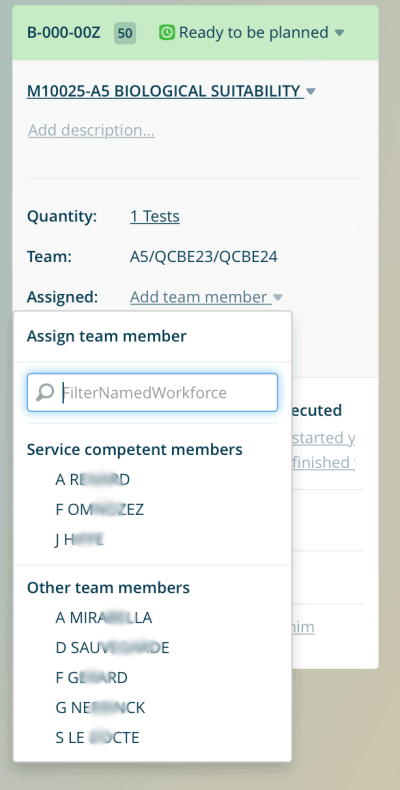
Resource Managers, Be Lazy When Assigning Resources
Decide as late as possible and keep your options open. I heard this as an intro statement at some conference a long time ago, and for some reason I stored it in my permanent memory. When you read it, it’s obvious. Of course you need to keep your options open. But when we coach team leaders on planning their workforce, we see they tend to assign all tasks to individual team members and firm them right away, even if these tasks are only due in the mid- or long term. The problem with early assignments is that work demand is not stable. Just because today you manage to fit all the demand in your team capacity that tomorrow, with some demand changes, it doesn’t mean the plan will still work. Priority changes, postponed demand and sudden team member unavailability are some examples of noise that needs to be handled recurrently. Team leaders and resource planners become frustrated when they need to re-assign tasks all the time. We therefore advise team leaders to keep their options open. However, this doesn’t mean they shouldn’t be able to answer the question of whether their team has the capacity to deliver the work that is coming in the following weeks and months. That’s where Binocs comes in.
Mid and long term
Binocs uses an algorithm to verify whether prioritized demand can be completed, taking into account your team’s competences and availabilities (and physical constraints). In the spirit of keeping your options open, Binocs will not impose individual assignments. It doesn’t matter (yet) whether Jack or Daisy will perform the task, as long as your team will have an available, competent team member when the demand arrives. And that’s exactly what Binocs helps you to find out. Life is never black or white, though. Sometimes, even though it’s long-term, you already know a task will be performed by a particular person. Or you may have organized your team in such a way that some task types are typically performed by a small group of people, although several other people are also competent. You can guide Binocs into taking these into account as well.
- Assign a specific team member to a particular task.
- Express a resource preference for a particular task type. Binocs will follow the preference if it leads to an acceptable plan. If not, another resource with the right competences will be selected.
Good is perfect; perfect is not good.
Our clients experienced that approaching the planning in such a way (without the perfect assignments) results in an almost trivial dispatching of tasks to individuals in the short term (the moment the demand arrives). That’s because big obstacles (priority clashes, competence/availability problems, physical constraints, etc.) are already eliminated long beforehand, but with less effort. So team leaders, for once it’s OK to be lazy…. Instead of spending 4 hours or more each week on detailed assignments, you can reduce that to 1 hour and invest the hours gained in coaching team members to improve their capabilities.
Is there nothing to improve on in the short term?
Although the day-to-day dispatching of tasks (= scheduling) is much easier if it’s preceded by resource planning as described above, we’re working on a way to let Binocs help you with the short-term scheduling as well. We’ll keep you posted on our advancements! But as always we’re aiming for simplicity and ease of use.
See resource assignment in action
If you’re interested to know how we deal with resource assignment in Binocs, please let us know.




